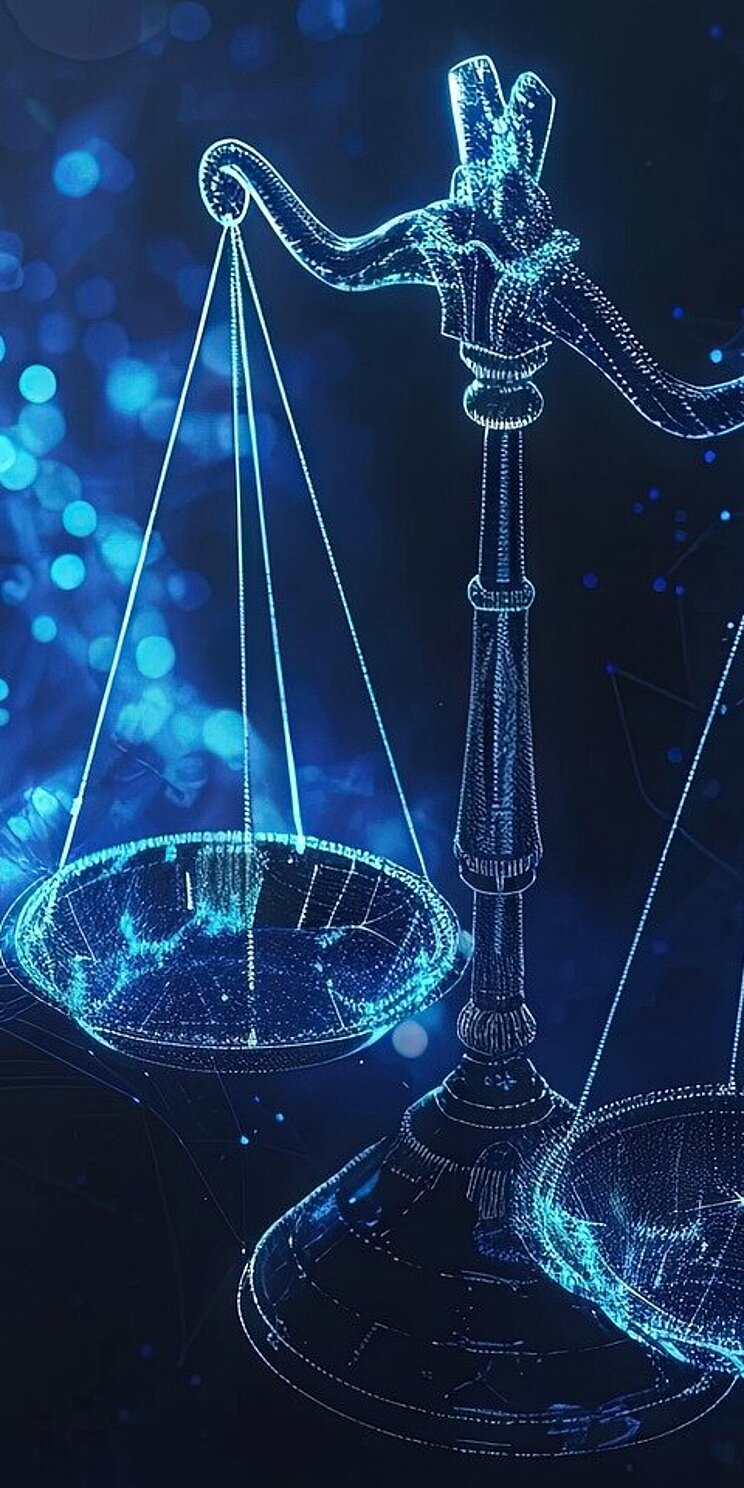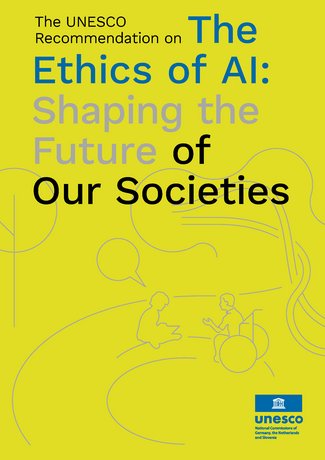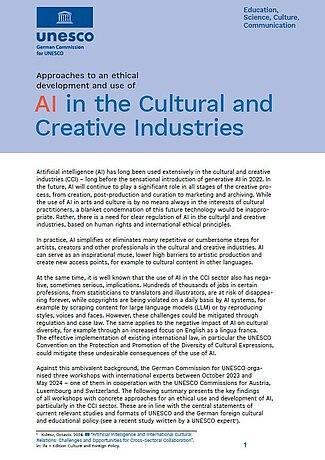The effects of the widespread use of AI applications can be positive and negative. For example, they can help to make our everyday lives easier, detect diseases at an early stage, and monitor biodiversity more effectively. However, they may also be used for puposes that are unacceptable from an ethical and human rights perspective. This includes the suppression of diversity of opinion and discrimination against minorities, for example.
In November 2021, the UNESCO member states adopted the first international legal text on the ethical development and use of AI: The UNESCO Recommendation on the Ethics of Artificial IntelligenceExternal link:. The text establishes a clear ethical framework for current and future AI applications and sets out goals and guidelines for UNESCO member state governments to ensure ethical AI development and use in eleven policy areas, including education, culture, communication, work, and health.
Implementation of the UNESCO Recommendation on the Ethics of AI in Germany
The German Commission for UNESCO is committed to support the implementation of the UNESCO Recommendation in GermanyExternal link:. To this end, it informs political decision-makers, academic experts, members of civil society, and the general public about the Recommendation. It organises specialist events, publishes related literature on the topic, and coordinates the preparation of national reports on the status of implementation in Germany. Particular attention is paid to “translating” the Recommendation's requirements into concrete measures in the German context. For instance, measures to prevent discrimination through AI, improve gender equality in the German AI sector, and foster the ethical use of AI in culture and the creative industriesExternal link: were identified in collaboration with experts.
Promoting a global exchange on ethical AI
Technology, such as artificial intelligence, does not stop at national borders. AI systems developed in countries such as the USA and China, for example, are used all over the world. The UNESCO Recommendation establishes fundamental global ethical standards for AI, which countries agree to uphold. However, poorer states and countries with weak governance structures often lack the means to ensure compliance with these standards. The German Commission for UNESCO is therefore also committed to achieving greater global fairness in AI. In addition to raising awareness among German stakeholders for issues of global justice in the development and use of AI, the focus is on exchanging with other National Commissions for UNESCO on issues of AI ethics.
[Translate to English:] Überschrift (Kopie 1)
[Translate to English:] Zurück zur Übersicht Ethik neuer Technologien
Back to overview Ethics of Emerging Technologies



